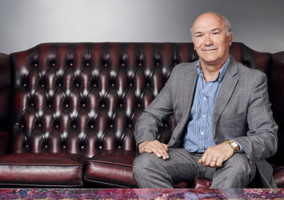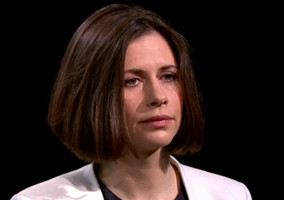The Charity Commission does not have the financial resource or the staffing expertise to properly regulate safeguarding issues in the international aid sector, MPs heard yesterday.
Giving evidence to the International Development Committee in parliament yesterday, Helen Evans, former global head of safeguarding at Oxfam, said she had blown the whistle on shortcomings in the aid sector in 2015, but her initial interaction with the Charity Commission had been “very poor”.
She said the Commission was not properly resourced or empowered to tackle international aid or safeguarding issues and a “dedicated safeguarding regulator” was needed.
“The Charity Commission currently has a budget of around £25m, just over 300 staff and then you look at the number of charities that require regulating," she said. "The resources they have versus the scale of the sector they regulate is incommensurate already. At the very minimum they’d need a significant increase in resource.
“With aid agencies you might have the incident happen in country A, the victim from country B, the perpetrators from county C who have now moved on to country D. You need to be able to work across multiple jurisdictions which I think would be a really big ask for the Charity Commission.
“We need a dedicated regulator for safeguarding with the skills and expertise to manage those. Failing that, the Charity Commission at least needs a specialised safeguarding investigations team.”
Also giving evidence alongside Evans was Asmita Naik, a consultant on international development and social policy. Naik supported Evans' view that greater regulation was needed, and said an independent ombudsman needs to be established in order to fix the issues around sexual exploitation and lax safeguarding in the aid sector.
“I’m not suggesting a major bureaucratic body that takes over everything the organisation should be doing," she said. "I’m suggesting that there should be a right of appeal for victims and their advocates if they feel that the internal processes don’t provide them with adequate redress.
“At the moment we have a situation where policy makers and donors are only finding out about these issues when the media chooses to write a story and that’s often several years too late.”
Naik also urged MPs not to wait for the “perfect ombudsman” for the UK aid sector and to begin the process immediately. She also said that an ombudsman would be the most cost effective solution available.
Evans agreed, saying “It will take a lot of resource [to set up an ombudsman], but it will be worth it. For international aid to be made accountable it needs an international ombudsman”. She suggested an international body could be headquartered in Switzerland and joint-funded by governments around the world, as well as by the UK.
Hire more women to fix culture in aid agencies
Evans also told MPs that achieving a better gender balance in senior teams – both in the UK and overseas – was “critical to getting on top” of sexual harassment in the international aid sector.
She said that in her experience “abusers were overwhelmingly men” and as men held the majority of senior positions both in the UK and in aid offices overseas it led to the fostering of a culture of abuse.
“We know that the majority of abusers are men, so if you have the majority of senior leadership positions being held by men and the majority of in country management teams are being held by men, there’s definitely a correlation in terms of the prevalence of abuse.
“Achieving gender balance in the international aid sector is an absolutely critical component of getting on top of abuse.”
Naik agreed, saying there was a “need for leadership to set the right tone” when it comes to stamping out systemic abuse.
Evans also said having more women in senior management positions would mean that sexual abuse victims would feel more comfortable coming forward and telling their stories.
Pauline Latham, Conservative member for Mid Derbyshire who sits on the committee, criticised what she called “the macho, white western culture that seems to view sexual exploitation as a perk of the job”.
The International Development Committee’s investigation into international aid safeguarding is ongoing.
Editor's note: This article originally stated that Naik had claimed an aid ombudsman would be expensive to set up. Naik said that an ombudsman would not be particularly expensive and in fact would be a more cost-effective solution compared to other options. The article has been amended to reflect that.
|
Related Articles












